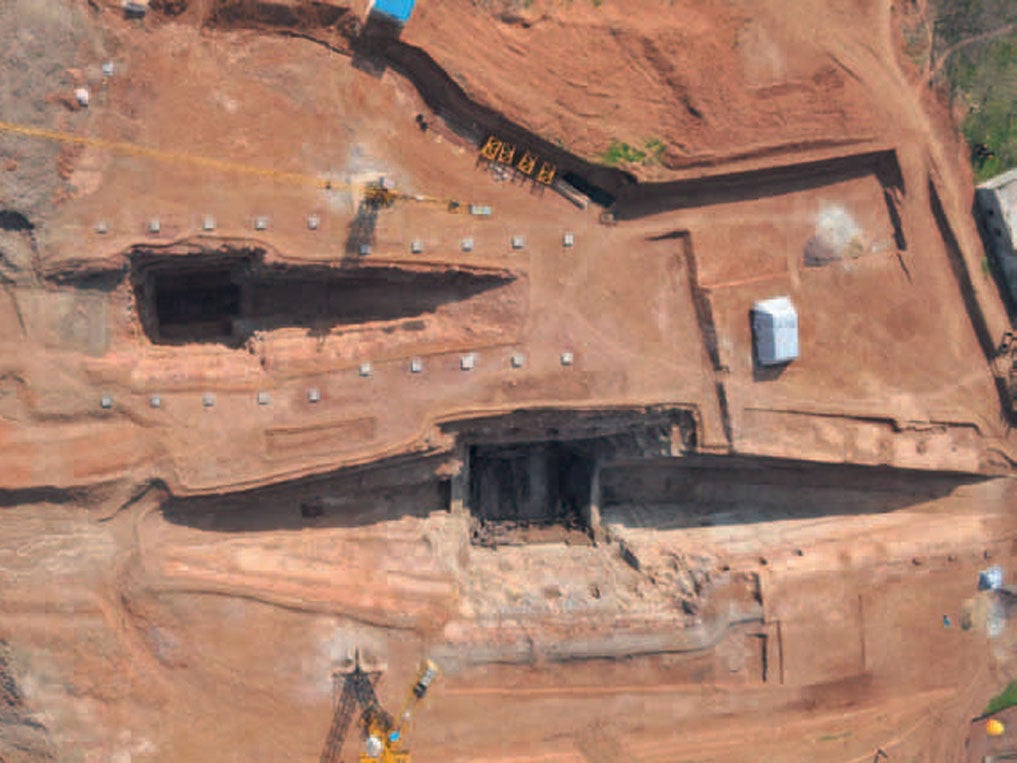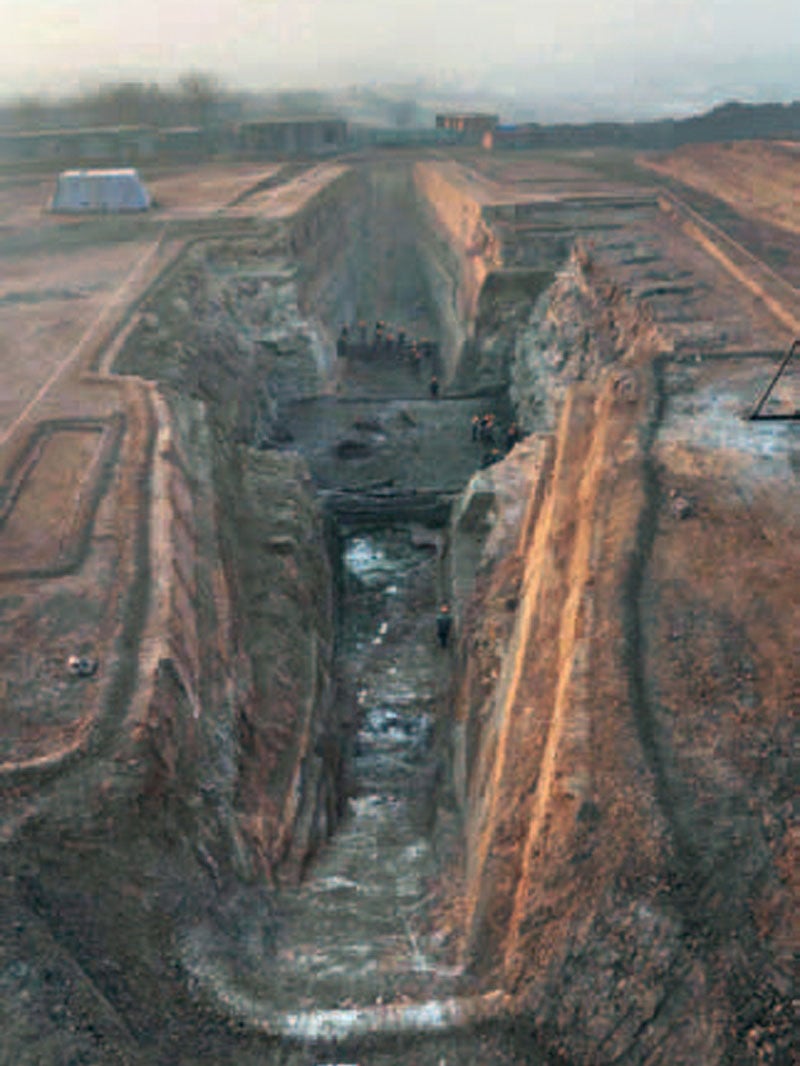Lavish tomb buried for 2,100 years with gold and treasure discovered in China
Liu Fei, ruler of Jiangdu Kingdom, was left with every comfort for the afterlife

A 2,100 year-old tomb built for a Chinese king has been excavated to reveal more than 10,000 pieces of treasure.
Archaeologists believe the mausoleum was for Liu Fei, who died in 128BC after 26 years ruling over the kingdom of Jiangdu during the Western Han dynasty.
Lying hidden up a mountain near populated areas of modern day Xuyi County, in Jiangsu province, the complex had already been looted several times when discovered by historians.
But thousands of artifacts, including treasure made of gold, silver, bronze and jade remained, according to a report in the Chinese Archaeology journal.
Bronze elephants and rhinoceros models were found for the first time, providing significant evidence of trade between ancient China and foreign countries.
Several life-size chariot and dozens of smaller chariots had been left to accompany Liu Fei into the afterlife.
A team of archaeologists from the Museum of Nanjing excavated the site over two years, revealing three main tombs, 11 "attendant tombs", two chariot and horse pits, two weaponry pits, and the remains of a wall that originally encompassed the complex.
The team said their work was a "rescue excavation" as the site was threatened by quarrying.
A large earth mound 150 metres high once covered the king's tomb, with two long shafts leading to a burial chamber, where Liu Fei had been equipped with everything needed for the afterlife.
His coffin had been damaged and the body itself was gone but fragments of a “jade burial suit” were found.
A stockpile of weapons, included iron swords, spearheads, crossbows and knives alongside chariots inlaid with gold and silver.

For entertainment, archaeologists also found chime bells, zithers and jade tuning pegs decorated with dragons among musical instruments.
An ancient “treasury” with more than 100,000 banliang coins – the first unified currency of the Chinese empire – was found to cater for Liu Fei’s financial needs and there were goose-shaped lamps to light his way.
The king was also provided with a kitchen complete with bronze cauldrons, steamers, wine vessels, cups and pitchers. Seashells, animal bones and fruit seeds were found as evidence of food left for him.
Liu Fei was renowned for admiring "daring and physical prowess" by contemporary historians, who said his way of life was marked by "extreme arrogance and luxury", Live Science reported.
A second tomb adjacent to his, named M2, contained an unknown person of high standing and contained pottery, lacquer goods, gold and silver.
"The 'jade coffin' from M2 is the most significant discovery," archaeologists wrote.
"Although the central chamber was looted, the structure of the jade coffin is still intact, which is the only undamaged jade coffin discovered in the history of Chinese archaeology."
Another tomb contained artifacts engraved with the surname "Nao", the name of Liu Fei’s famous consort, Lady Nao, whose beauty was apparently so great that she went on to be a consort for his son Liu Jian and then for another king.
The Chinese empire was hugely wealthy in the second century BC but warring kingdoms challenged the Emperor’s power.
Liu Jian, Liu Fei’s son, allegedly plotted against the Emperor as ruler of Jiangdu seven years after his father’s death and his kingdom was seized.
In reports after the saga, writers alleged Liu Jian had engaged in bizarre behaviour, including having an orgy with 10 women in a tent above his father’s tomb.
Join our commenting forum
Join thought-provoking conversations, follow other Independent readers and see their replies
Comments
Bookmark popover
Removed from bookmarks